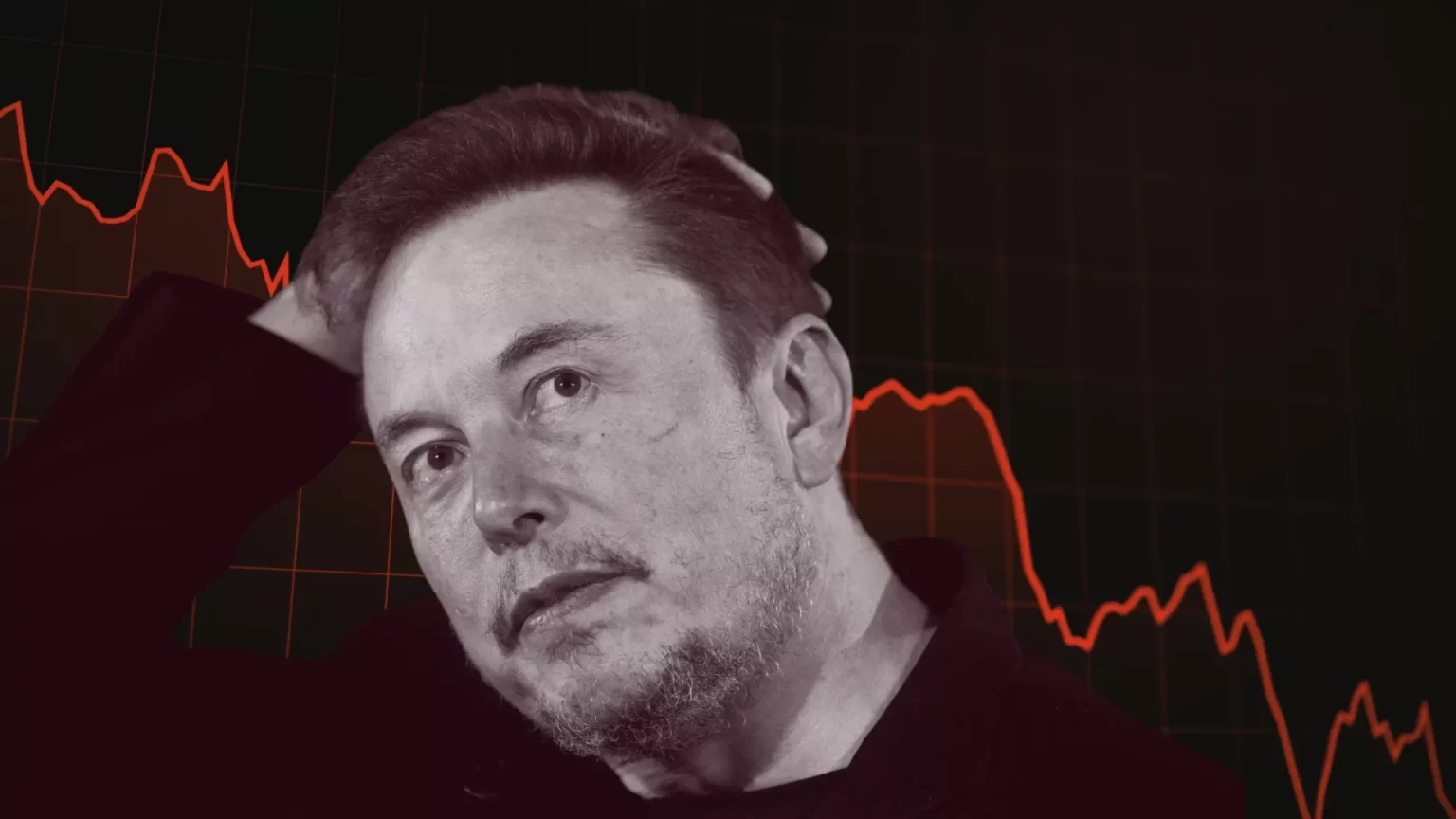|
Getting your Trinity Audio player ready...
|
The once-prominent social media platform, Twitter, now rebranded as X, has seen its value nosedive by 75% since Elon Musk‘s $44 billion (€39.6 billion) acquisition in October 2022. A recent disclosure from Fidelity’s Blue Chip Growth Fund reveals that the platform’s worth now stands at $9.4 billion (€8.48 billion), a stark contrast to the initial purchase price.
The report highlights the challenges facing Musk’s social media venture, once a household name, now grappling with declining value and a shrinking user base.
From Twitter to X: A Controversial Rebranding
Elon Musk’s decision to overhaul Twitter into X remains one of the most hotly debated moves since his acquisition of the platform. When Musk announced his intent to buy Twitter in April 2022, its share prices surged by 22%, showing initial optimism about the future of the platform under his leadership. However, in the months that followed, several controversial decisions, including the radical rebranding to X, erased that goodwill.
Rebranding a globally recognized platform like Twitter was seen by some as risky and, in hindsight, detrimental to the company’s market value. According to branding experts, Twitter’s iconic logo and name carried decades of equity. The transition to X stripped away much of that brand recognition, which could have contributed to the subsequent decline in its perceived value. Fidelity’s report now puts X’s total valuation at just $9.4 billion, less than a quarter of what Musk paid.
Verification System Overhaul Sparks Controversy
Beyond the rebranding, Musk initiated a complete revamp of X’s verification system. Historically, Twitter’s verification stamp—a blue check—was given to prominent figures at risk of impersonation, such as celebrities, politicians, and media personnel. This system, implemented in 2009 after a lawsuit by Tony La Russa, former manager of the St. Louis Cardinals, was designed to authenticate legitimate users.
Under Musk’s leadership, the verification process transitioned into a subscription-based model, with X Premium subscribers paying monthly fees for the once-coveted blue check. This change did not sit well with long-time users, who were accustomed to the old verification standards. The platform also introduced grey checks for government-affiliated accounts and gold checks for businesses. Initially, businesses were charged $1,000 per month for the gold check, but by January 2024, the cost dropped to $200 monthly.
While Musk hoped the changes would increase revenue, the altered verification system led to significant backlash. Critics argued that it undermined the credibility of the platform and allowed impersonation of public figures and companies to proliferate.
Exodus of Advertisers Hits X’s Financial Health
Arguably one of the most significant blows to X’s value is the mass exodus of advertisers. Several major corporations, including Apple, Coca-Cola, and Disney, removed paid ads from the platform in 2023. These departures were spurred by Musk’s endorsement of an anti-Semitic post, which sparked global outrage. In addition to these brands, organizations like the European Commission, Comcast, IBM, and the World Bank also pulled their advertising campaigns, citing concerns about hate speech and the prevalence of Nazi-related content on X.
Musk’s tolerance of controversial content has been a point of contention, as it has directly impacted X’s ability to attract and retain advertisers. Without major advertising revenue, X has struggled to maintain its financial stability. This decline in revenue has likely contributed to the 75% decrease in the company’s valuation since Musk took over.
Musk’s Initial Twitter Acquisition: A Rocky Start
Musk’s journey with Twitter, now X, began in April 2022, when he offered $54.20 (€48.89) per share to buy the company and take it private. Twitter initially accepted the offer, but the acquisition quickly became fraught with legal challenges. By July 2022, Musk attempted to back out of the deal, citing concerns about spambots on the platform and accusing Twitter of violating their agreement by firing top executives and cutting staff.
In response, Twitter’s board sued Musk, seeking to force the completion of the sale. As the trial loomed, Musk reversed his stance and agreed to move forward with the purchase at the original price. The acquisition was finalized in October 2022, and Musk became the official owner of Twitter, quickly rebranding it to X and implementing sweeping changes.
A Shift to Texas: Cost-Cutting Measures Amid Value Decline
As X’s financial struggles continue, the company has been forced to make cost-saving decisions. One notable move was relocating its headquarters from San Francisco, California, to the small town of Bastrop, Texas, home to just 9,688 residents according to the 2020 U.S. Census. This move reflects Musk’s broader trend of relocating his ventures, as seen with Tesla’s move to Texas in 2021.
While moving to Texas may reduce operating costs, it has not done enough to stabilize the platform’s declining value. According to Fidelity’s Blue Chip Growth Fund, the firm’s original investment of $19.66 million (€17.73 million) in X is now worth just $5.5 million (€4.96 million)—a staggering loss for investors.
Looking Ahead: Can X Recover?
Despite the steep decline in value and user backlash, X remains a platform with a global user base. In May 2023, Musk appointed Linda Yaccarino, former head of global advertising and partnerships at NBCUniversal, as CEO. Her appointment was seen as an attempt to address X’s faltering relationships with advertisers and rebuild confidence in the platform.
Yaccarino’s extensive background in media and advertising could help X restore some of its lost revenue streams, but the road to recovery will be long. The platform must address concerns about hate speech, restore its relationships with advertisers, and regain user trust if it hopes to bounce back from its current financial woes.
As it stands, X’s future is uncertain, but with Musk at the helm and Yaccarino steering the business side, there may still be a path to recovery. However, the rebranding to X, the overhaul of the verification system, and the loss of advertising revenue have left a deep dent in the company’s valuation—one that will require careful strategy and rebuilding to overcome.
